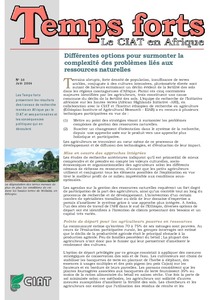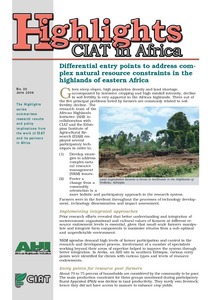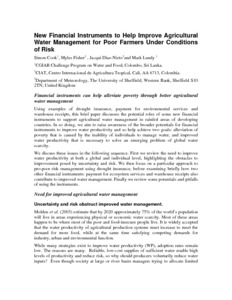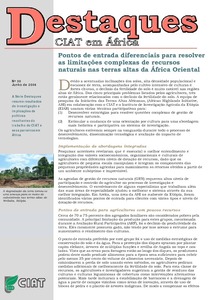Technology Adoption under Production Uncertainty: Theory and Application to Irrigation Technology
We propose a theoretical framework to analyze the conditions under which a farmer facing production uncertainty (due to a possible water shortage) and incomplete information will adopt a more efficient irrigation technology. A reduced form of this model is empirically estimated using a sample of 265 farms located in Crete, Greece. The empirical results suggest that farmers choose to adopt the new technology in order to hedge against production risk.







